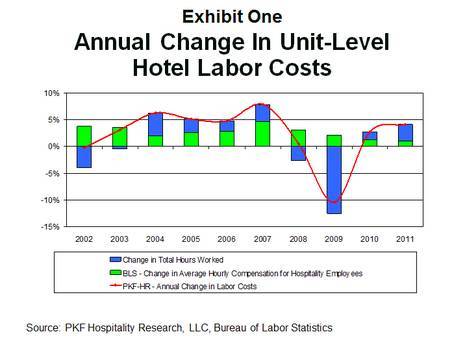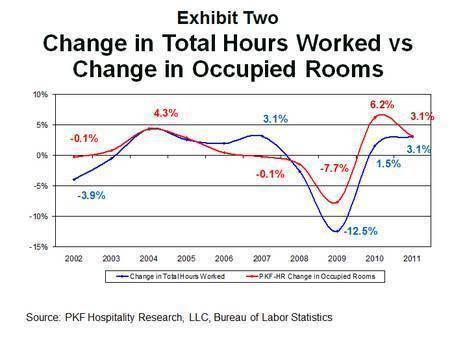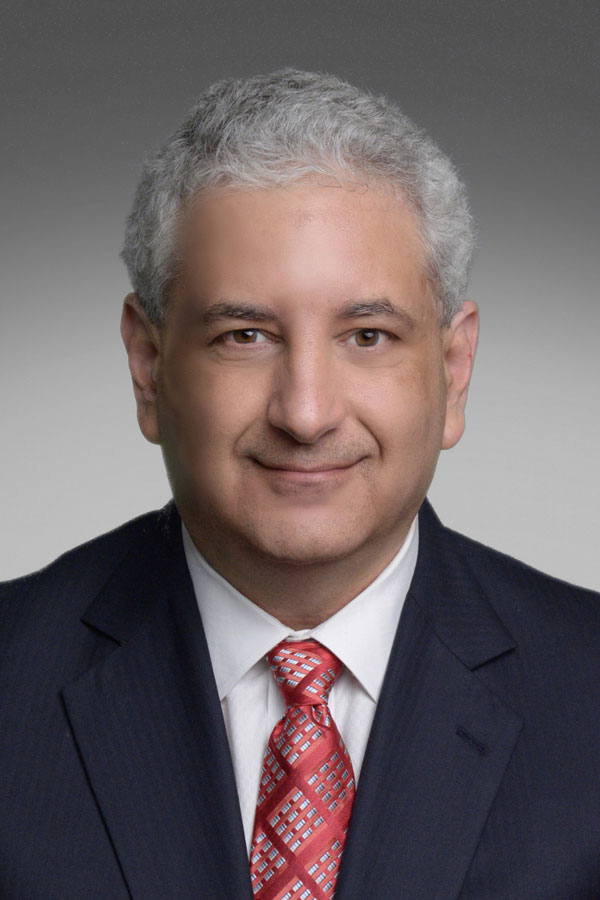Staffing For Prosperity | By Robert Mandelbaum
Staffing For Prosperity | By Robert Mandelbaum
In 2010 it was the ability of U.S.hotel managers to control labor costs that was the driving force behind the subdued 3.4 percent increase in total operating expenses posted by the properties in our Trends® in the Hotel Industry survey sample. Despite a 6.2 percent gain in occupied rooms in 2010, operators were able to service the increased volume of business with just a 1.5 percent rise in the total hours worked by hotel employees. Following the dramatic declines in revenues and profits suffered during 2009, it was no surprise that hotels were leery to "staff up" despite the sharp rise in lodging demand.
As theU.S.lodging industry continues along the road to recovery and occupancy levels begin to surpass long-run average levels, hotel managers will be challenged to continue to operate on austere levels of staffing. If 2011 was any indication, it appears that operators may have already reached the point when additional employee hours are needed to provide the amenities and services typically offered when hotels are more prosperous.
Measuring Staffing
To gain a better understanding of movements in hotel staffing levels, we analyzed the change in the total number of employee hours worked at the average property in our Trends® survey. The following data was gathered to calculate historical changes in hours worked:
- Total labor costs (salaries, wages, bonuses, and benefits) from the PKF-HR Trends® database.
- Average hourly compensation (salary, wage, bonus, and benefits) paid to employees in the Leisure and Hospitality Industry. These data come from the Bureau of Labor Statistics (BLS).
By subtracting the annual change in employee hourly compensation from the annual change in total labor costs at a hotel, we are able to isolate the change in total hours worked. For example, in 2007 the average labor costs increased by 7.8 percent and the average hourly compensation per employee grew by 4.7 percent. Therefore, the total hours worked at an average Trends® hotel increased by 3.1 percent.
According to the BLS, the average weekly hours worked by an individual Leisure and Hospitality employee has not changed significantly over the years, thus facilitating the preceding calculation. Exhibit One presents the pertinent labor cost and compensation date for the years 2002 through 2011, as well as the resulting calculation of hours worked.
Productivity
To provide some context to the historical changes in staffing, we analyzed the historical relationship between the annual changes in total hours worked by all employees and the annual changes in the number of occupied rooms. When the change in hours worked exceeds the change in rooms occupied, this would be an indication of a decline in productivity. Conversely, when the change in occupied rooms exceeds the change in hours worked, it would indicate an increase in productivity.
Analyzing the historical productivity data presented in Exhibit Two we are able to make the following observations:
Recessions
- In 2002, 2008, and 2009 hotel managers cut staffing levels in the face of declines in occupancy.
Initial Recovery
- In 2003 and 2010, the initial surge in rooms occupied was greater than the growth in number of hours worked, thus indicating an increase in employee productivity.
Advanced Recovery
- As occupancy levels continued to recover in 2004, 2005, and 2011, there was a commensurate increase in staffing (hours worked).
Prosperity
- In 2006 and, 2007, we saw the number of hours worked increase at a greater pace than the rise in occupied rooms, thus indicating a decline in employee productivity.
Future Staffing
Based on the June 2012 edition of PKF-HR's Hotel Horizons® report, PKF-HR forecasts continual growth in occupancy and ADR levels for U.S. hotels through 2015. This will result in a period of revenue and profit growth well above long-run averages. If history repeats itself, we can expect hotels to react to the prosperous market conditions by scheduling more hours for their existing staff, and hiring additional employees as needed.
Increased levels of staffing will most likely result in declines in productivity, but the impact on profitability should be minimal. The expected continuation of high levels of unemployment should help to suppresses future increases in employee compensation, thus limiting the growth in total labor cost expenditures.
* * *
Robert Mandelbaum is Director of Research Information Services for PKF Hospitality Research, LLC. He is located in the firm's Atlanta office. To purchase a copy of the 2012 Trends® in the Hotel Industry report, please visitwww.pkfc.com/store. This article was published in the July 2012 issue of Lodging.
ABOUT PKF CONSULTING USA, LLC
Headquartered in San Francisco, PKF Consulting USA, LLC (www.pkfc.com) is an advisory and real estate firm specializing in the hospitality industry. PKF Consulting USA is owned by FirstService Corporation (FSRV) and is a subsidiary of Colliers International. The firm operates two companies: PKF Consulting USA and PKF Hospitality Research. The firm has offices in New York, Boston, Portland ME, Indianapolis, Chicago, Philadelphia, Washington DC, Atlanta, Jacksonville, Tampa, Orlando, Houston, Dallas, Los Angeles, Bozeman, and San Francisco.
TAGS
bureau of labor statistics, dramatic declines, hourly compensation, hr trends,hotel managers, hospitality industry, occupancy levels, hotel employees, industry survey, lodging industry, hotel industry, bureau of labor, operating expenses,driving force, wages, salaries
CONTACT
Robert MandelbaumDirector of Research Information Services
Email: robert.mandelbaum@pkfc.com
ORGANIZATION
www.pkfc.com
3475 Lenox Road | Suite 720
USA - Atlanta, GA 30326
Phone: (404) 842-1150
Fax: (404) 842-1165
Email: robert.mandelbaum@pkfc.com
RECENT NEWS
| Here Come The Profits | The 2012 edition of Trends® Survey | By Robert Mandelbaum Tuesday 17 July 2012 |
| Hotel Lenders and Investors at Ease With Direction of Investment Market Thursday 12 July 2012 |
| Video: Hotel Horizons® Market Update - June 2012 | PKF Hospitality Research Wednesday 27 June 2012 |




Organized content is the best way to display or post an article, thank you for making it easy to digest your post.
ReplyDeleteIT Consulting Los Angeles